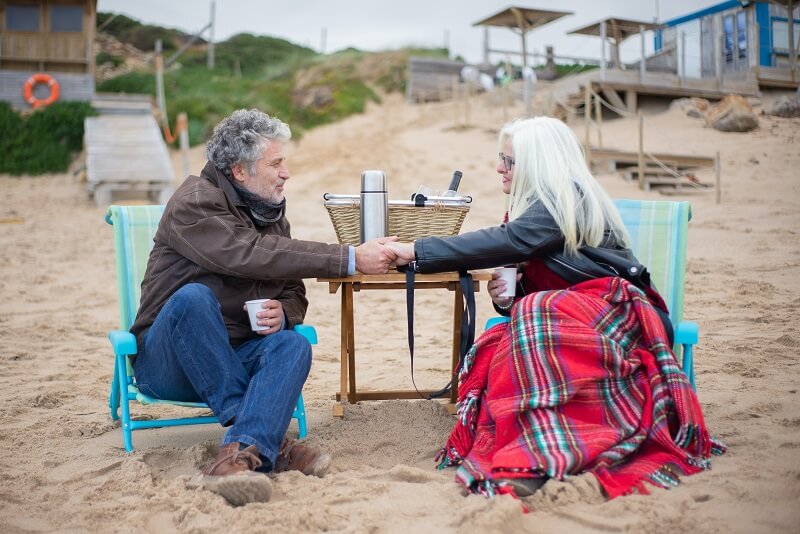Elderly people who experience difficulties like memory loss and loss of other cognitive functions feel frustrated and helpless. Social interaction during this time can significantly enhance their well-being, mood, and cognitive abilities. In this blog, we will shed light on the benefits of social interaction for residents of memory care facilities.
We will investigate how social interaction benefits those who have dementia and other memory-related illnesses in terms of cognitive function.
What are Memory Care Residences or Facilities?
Memory care facilities are specialized housing options for people with memory-related conditions like dementia and Alzheimer’s. These facilities provide senior citizens with a secure environment that enhances their general health and quality of life. Several activities are planned by these facilities to stimulate the brain’s cognitive function and stop further cognitive decline.
What Social Interaction Activities for Memory Care Resident
The purpose of social interaction activities is to meaningfully and pleasantly stimulate the residents of memory care facilities. These activities are thoughtfully chosen to encourage social interaction among the residents, strengthen cognitive abilities, and enhance general well-being.
Here are a few examples of typical social interaction activities in memory care facilities:
- Group Discussions
- Reminiscence Therapy
- Arts and Crafts
- Music Therapy
- Cooking or Baking Groups
- Dance and Movement
- Games and Puzzles
- Storytelling Sessions
- Gardening
- Pet Therapy
- Celebration of Holidays and Special Occasions
- Outdoor Walks and Picnics
Benefits of Social Interaction for Memory Care Resident
Social interaction plays an important role in the development of our cognitive function and mental well-being. Here are some scientifically proven benefits of social interaction for the residents of memory care facilities:
Cognitive Stimulation
Constantly engaging in conversations and group activities helps in slowing down the cognitive decline and maintains a cognitive function. Social interaction helps residents of memory care to think, problem-solve and stay mentally active.
Emotional Connection
Social interactions give people the chance to connect and express their emotions. Positive interactions with peers, caregivers, and family can boost happiness, lessen feelings of loneliness, and enhance emotional wellbeing in general.
Memory Recall
During social interactions, talking and telling stories may result in memory recall. Memory care residents can reconnect with their personal history and maintain a sense of identity by telling stories and thinking back on the past.
Reduced Agitation and Behavioral Issues
Regular social interactions can aid in lowering agitation, aggression, and other negative emotions that are frequently observed in memory care residents. Social interaction can create a soothing and encouraging atmosphere that reduces disruptive behaviors.
Improved Communication
Conversations with others aid in maintaining and enhancing the communication skills of residents of memory care facilities. Their capacity to communicate their needs, express themselves, and comprehend others may improve as a result.
Enhanced Physical Health
Social interaction and group activities can motivate residents of memory care facilities to continue their physical activity. Being active can improve memory and general wellbeing as physical and cognitive health are closely related to one another.
Boosted Mood and Reduced Depression
Residents of memory care facilities frequently experience loneliness and social isolation, which can worsen depression and anxiety. Meaningful social interactions promote a sense of belonging, companionship, and a happier disposition.
Trust and Support
Memory care residents can build relationships, share experiences, and offer support to one another by participating in group activities and social events. This sense of community can enhance their overall quality of life.
Reduction of stress
Social contacts can ease tension and lower stress levels. A sensation of peacefulness can be induced by partaking in enjoyable activities and spending time with friends and family.
Family Involvement
Regular social contacts between friends and family members give residents of memory care facilities the chance to stay in touch with their loved ones. These encounters can support family members in maintaining contact and involvement in the care of their loved ones.
Final Verdict
In a landscape where the challenges of memory care demand innovative approaches, the significance of social interaction emerges as a clear and potent solution. Through a meticulous review of scientific studies and experiential narratives, it becomes evident that fostering meaningful social engagement for memory care residents reaps multifaceted benefits.
The amalgamation of cognitive stimulation, emotional nourishment, and a profound sense of belonging underscores the pivotal role social interaction plays in enhancing the lives of memory care residents. From the revival of cherished memories to the establishment of deep-seated emotional connections, the transformative power of human interaction cannot be underestimated.





